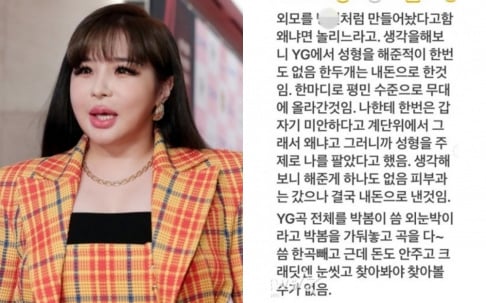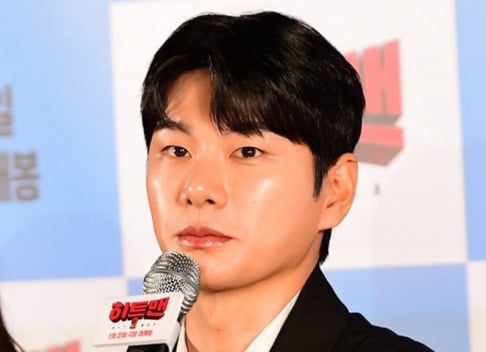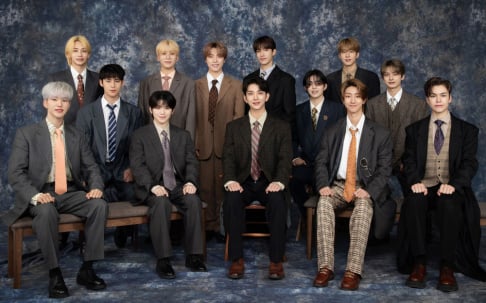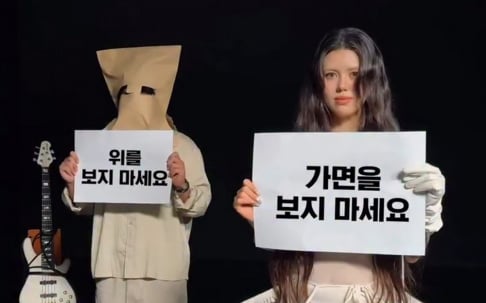
The Korean drama industry is grappling with a crisis precipitated by the sharp rise in domestic drama production costs. This is causing fewer dramas to be produced.
To address this growing issue, the Korean Drama Production Companies Association had a meeting on January 16 in their office in Sangam-dong, Mapo-gu, Seoul. People from different drama production companies and TV platforms came together to talk about how to stop costs from getting too high and ensure more dramas get made.
In the meeting, they mainly talked about the big challenges that production managers are dealing with, especially because the money paid to the main actors is getting really high. This issue is not just about having fewer dramas; it's also a big problem for the whole TV and video industry in Korea. Everyone at the meeting agreed that they need to solve this problem quickly, and they pointed out that the high fees for main actors are a crucial part of the issue.
A representative from a broadcasting company weighed in, stating, "Issues frequently arise during negotiations, particularly concerning actors' fees, which have experienced a rapid uptick. Lead actors are now demanding exorbitant fees, and with reduced scheduling, production companies find themselves compelled to pay hundreds of millions of KRW per episode to secure actors, thereby facilitating smoother scheduling. This, in turn, has triggered a vicious cycle, further driving up production costs."
A production company representative expressed concern, "Some star actors pre-select broadcasting platforms before signing contracts, frequently changing scripts on set, and even replacing directors. In such scenarios, it becomes disheartening for production companies, raising questions about their role in the process. Urgent solutions are needed, whether through negotiations with management agencies or policy formulation."
This reflects the significant restructuring of the entire drama industry, largely due to the diminished influence of domestic broadcasters and the rise of global streaming (OTT) platforms like Netflix. While actors' fees have escalated globally, the reality is that domestic industry capital struggles to cover production costs. Yet, there seems to be no current solution to curb this trend. Among production companies, there is a growing concern, with comments such as, "It's frightening how casually production costs of 2 billion KRW (1.5 million USD) per episode are mentioned."
A representative of one production company shared, "While preparing for a recent project and proceeding with casting, actors quoted fees of 400 million KRW (300,000 USD), 650 million KRW (487,000 USD), and 700 million KRW (500,000 USD) per episode. Fees are now centered around global OTT platforms like Netflix, presenting challenges. In reality, we pay much more than what is reported in the media or articles." The representative also noted, "In China, an actor's fee cannot exceed 40% of the total production cost, and the fee for leading roles cannot surpass 70%. We agreed that Korea urgently needs similar guidelines for a healthy ecosystem."
Another production company head expressed difficulty, stating, "When casting, there is a significant difference in production budgets between us and global OTT platforms like Netflix. Yet, it seems the same standards are being applied to us, leaving us in a difficult position to determine the appropriate level of actor fees."
An official from a production company pointed out the discrepancy in fees, saying, "During fee negotiations, there is a significant difference between broadcast and OTT fees. For example, an actor receiving 4 million KRW (3,000 USD) on broadcast might get 15 million KRW (11,200 USD) on OTT. From a production company's perspective, a 10% increase for an actor earning less than 50 million KRW is manageable at 5 million KRW. However, fees tend to double when moving to OTT and do not decrease afterward."
The problem lies in the fact that if star actors do not participate, the licensing fees of the project is set unreasonably low, or difficulties arise right from the investment stage. Production companies are thus forced to comply with the high fee demands of star actors. As the proportion of the leading actor's fee increases, it inevitably becomes more challenging to allocate the production budget to other elements that enhance the quality of the work.
In seeking a resolution, suggestions were put forward to calculate fees based on production periods, shooting days, and hours rather than per episode. Nevertheless, challenges persist, with glaring disparities in actor fees between broadcast and OTT platforms.
Korean netizens commented, "But then OTT dramas are worldwide so the cost would go up but the issue is the staff still get paid the minimum," "I think there should be regulation that sets a specific percentage of pay goes to the actors," "I think the other production companies other than Netflix that give infinite production cost would all go under," "They should pay the staff better," "These actors are trying to earn money so easily," and "This is all because of the global OTT platforms paying actors so much."
 SHARE
SHARE












































That's because lacks of competition in the leading actors/actress role.
everywhere you go nowadays, you keep seeing the same face over and over and over again!!
2 more replies